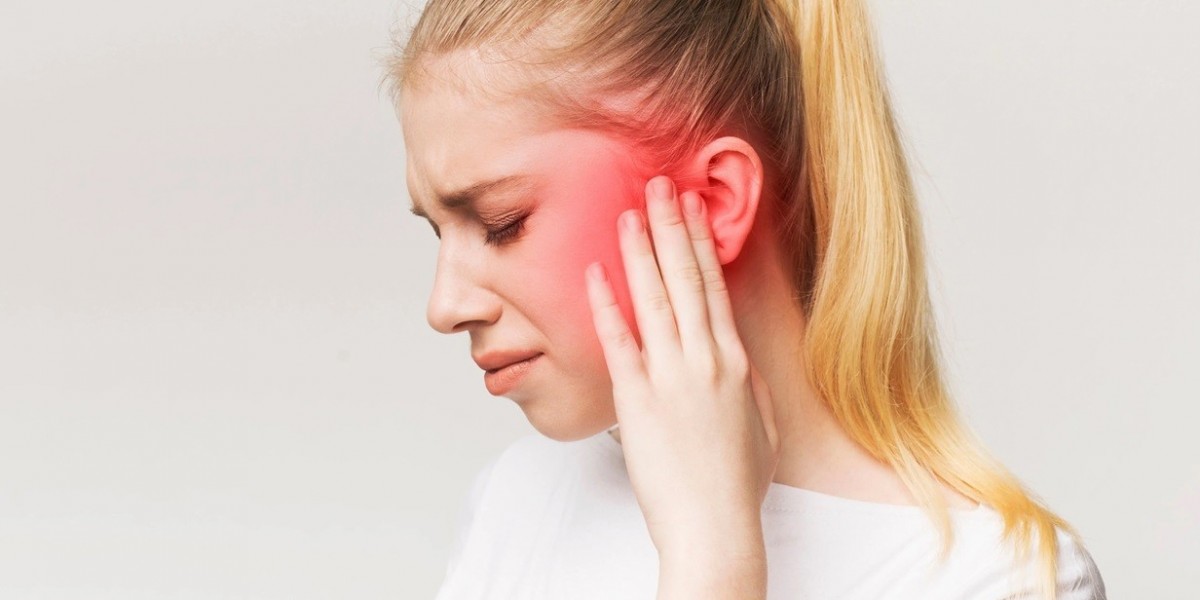Introduction
If you’ve ever experienced jaw pain, difficulty chewing, or a clicking sound when you open your mouth, you might be dealing with a TMJ disorder. Temporomandibular joint (TMJ) disorders are a group of conditions affecting the jaw joint and surrounding muscles. Understanding the symptoms, causes, and treatments of TMJ disorders can help you manage this often painful condition more effectively.
Understanding TMJ Disorders
What Is the TMJ?
The TMJ is the joint that connects your lower jaw (mandible) to your skull, located just in front of each ear. It allows you to move your jaw up and down and side to side, so you can talk, chew, and yawn.
How TMJ Disorders Develop
TMJ disorders develop when there are problems with the muscles and joints that control jaw movement. This can result from various factors, leading to pain, discomfort, and functional issues with the jaw.
Common Symptoms of TMJ Disorders
Jaw Pain and Tenderness
One of the most common symptoms of TMJ disorders is pain in the jaw joint and surrounding muscles. This pain can be persistent or occur only when you move your jaw.
Difficulty in Chewing and Talking
TMJ disorders can make it hard to chew or talk. You might feel like your jaw is getting stuck or locked, or you might notice a decrease in your jaw’s range of motion.
Clicking and Popping Sounds
Many people with TMJ disorders hear clicking, popping, or grating sounds in the jaw joint when they open or close their mouth. While these sounds are not always painful, they can be a sign of TMJ issues.
Headaches and Earaches
TMJ disorders can also cause headaches and earaches, often mimicking migraines or ear infections. The pain can radiate from the jaw to other areas of the head and neck.
Causes of TMJ Disorders
Physical Injury
Trauma to the jaw or head, such as a blow to the face, can damage the TMJ and lead to disorders. Accidents, sports injuries, and even extensive dental work can be culprits.
Arthritis
Arthritis, particularly osteoarthritis or rheumatoid arthritis, can affect the TMJ, leading to pain and reduced function. This type of joint inflammation can wear down the cartilage in the TMJ over time.
Bruxism (Teeth Grinding)
Bruxism, or the habitual grinding or clenching of teeth, often during sleep, puts immense pressure on the TMJ. Over time, this can lead to significant wear and tear, causing TMJ disorders.
Stress and Anxiety
High levels of stress and anxiety can contribute to TMJ disorders. People under stress often clench their jaws or grind their teeth, leading to muscle tension and TMJ problems.
Diagnosing TMJ Disorders
Medical History and Physical Examination
To diagnose TMJ disorders, your dentist in Delhi will review your medical history and perform a physical examination. They’ll check for pain, tenderness, and unusual jaw movements.
Imaging Tests
Imaging tests like X-rays, MRIs, and CT scans can provide detailed images of the TMJ, helping to identify any abnormalities or damage to the joint.
Other Diagnostic Tools
Other diagnostic tools may include dental impressions and bite analysis to see how your teeth fit together. Electromyography (EMG) can also measure the electrical activity of your jaw muscles.
Treatment Options for TMJ Disorders
Home Remedies and Lifestyle Changes
Simple home remedies and lifestyle changes can often help manage TMJ symptoms. Applying ice or heat to the jaw, eating soft foods, avoiding extreme jaw movements, and practicing relaxation techniques can provide relief.
Medications
Over-the-counter pain relievers, anti-inflammatory drugs, and muscle relaxants can help manage TMJ pain and inflammation. In some cases, doctors might prescribe stronger medications.
Physical Therapy
Physical therapy exercises can strengthen jaw muscles, improve range of motion, and reduce pain. Therapists might also use techniques like ultrasound or moist heat to relieve symptoms.
Dental Treatments
Dental treatments, such as bite guards or splints, can help alleviate TMJ symptoms. These devices are designed to reduce teeth grinding and jaw clenching. Orthodontic treatments may also be necessary to correct bite issues.
Surgical Options
In severe cases, surgical options like arthrocentesis (joint irrigation), arthroscopy (minimally invasive joint surgery), or open-joint surgery might be considered. Surgery is usually the last resort after other treatments have failed.
Preventing TMJ Disorders
Stress Management Techniques
Managing stress through techniques like meditation, yoga, or counseling can reduce the likelihood of developing TMJ disorders. Stress management helps prevent teeth grinding and jaw clenching.
Healthy Eating Habits
Eating a balanced diet that includes plenty of soft foods can minimize stress on the jaw. Avoiding hard, crunchy, or chewy foods can also help prevent TMJ disorders.
Avoiding Harmful Behaviors
Avoid habits that can strain your jaw, such as chewing gum excessively, biting your nails, or holding the phone between your shoulder and ear. Being mindful of these behaviors can protect your TMJ.
Conclusion
TMJ disorders can significantly impact your quality of life, but understanding the symptoms, causes, and available treatments can help you manage this condition effectively. From home remedies to professional medical treatments, there are many ways to alleviate TMJ pain and improve your jaw function. If you’re experiencing symptoms, consult with a maxillofacial surgeon in Delhi to find the best treatment plan for you.
FAQs
What are the most common symptoms of TMJ disorders?
Common symptoms include jaw pain, difficulty chewing, clicking or popping sounds in the jaw, headaches, and earaches.
How is TMJ disorder diagnosed?
Diagnosis typically involves a medical history review, physical examination, and imaging tests like X-rays or MRIs to assess the condition of the jaw joint.
Can TMJ disorders be cured permanently?
While there is no guaranteed cure, many treatments can effectively manage and alleviate symptoms. Long-term relief often involves a combination of lifestyle changes, therapies, and sometimes surgery.
Are there any home remedies for TMJ disorders?
Yes, home remedies like applying ice or heat, eating soft foods, avoiding extreme jaw movements, and practicing relaxation techniques can help relieve TMJ symptoms.
When should I see a doctor for TMJ disorder symptoms?
If you experience persistent jaw pain, difficulty chewing, or severe headaches, it’s important to consult a doctor or dentist. Early diagnosis and TMJ treatment in Delhi can prevent further complications.









